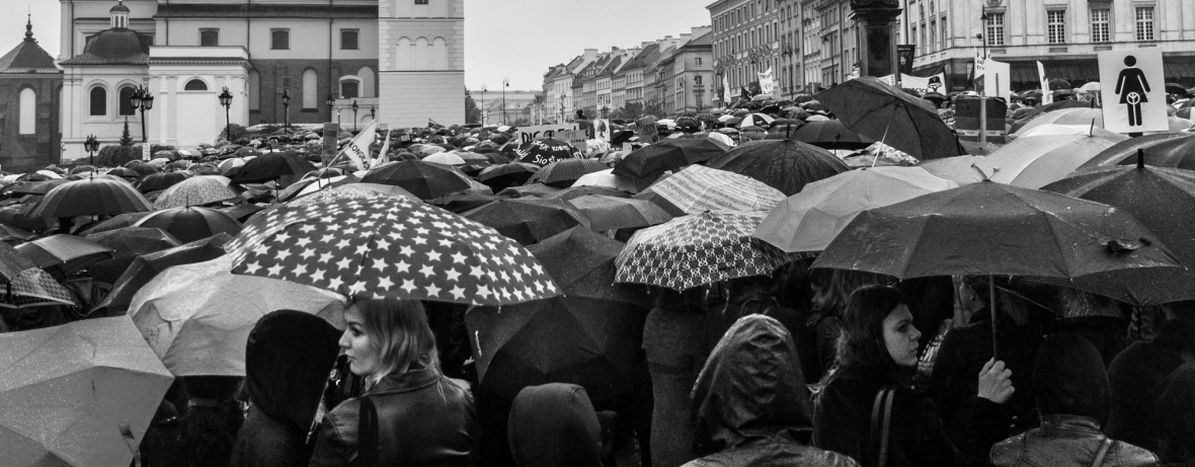
What's going on with the #CzarnyProtest? A brief recap
Published on
Over the past few weeks, women in Poland have fiercely fought the government's attempts to strengthen the country's abortion laws, which were already some of the strictest in Europe. The #CzarnyProtest has been growing across the EU, and this week saw some dramatic developments. Our Polish editor explains the situation in full.
On Friday 23 September the Polish Sejm [the lower house of the Parliament, Ed.] voted on a citizen project proposing to ban abortion that had been submitted to them by a group of anti-abortion NGOs in spring.
The project presented amendments to the already very restrictive abortion Polish law proposing to remove all three exceptions in which abortion was legal before (rape, malformation of foetus, danger to the life and health of mother) and criminalise both the women who undergo abortion and the doctors who help them.
432 MPs voted on the project: 267 were in favour, including 230 from the majority conservative party, Law and Justice. 154 MPs pronounced themselves against the project. As a result, the project was accepted for the second reading in the Commission of Justice and Human Rights.
On Monday, around 100,000 people in more than 60 Polish cities, mainly women, boycotted work and protested against the introduction of this very restrictive law.
This Wednesday, at about 3PM,the news broke that the session of the commission was called for 5pm the same day (according to parliamentary law, any meeting of this sort is supposed to be announced three days in advance). A soon as this information reached social media, women started to organise a new protest in front of the Sejm, while some who were members of citizen NGOs decided to exercise their right to enter the building and participate in the session of the Commission.
However, at the entrance of the building, they found that they were refused access and their passes had been blocked. They were finally let in after opposition MPs put pressure on the Commission chairman, Andrzej Matusiewicz.
The Commission's vote was shambolic and bursting with emotion. The MPs present there voted for the rejection of the restrictive abortion project. Even the MPs of the Law and Justice voted against the project which they had supported so ardently not even a week before.
Following this Commission session, a parliamentary session was called yesterday night, at 11PM. Although talks were passionate, it was inconclusive.
The most recent vote on the new abortion law took place today this morning. Now 352 were for against the changes(186 from Law and Justice), 58 were in favour, and 18 abstained from voting.
In her public speech following the vote, the Polish PM Beata Szydło said that the government is still going to strive to protect life at all its stages, however, now by:
1. Establishing a social aid programme for families who decide to have handicapped children/children with problems (whatever that means).
2. Securing a part of the 2017 budget for the implementation of that programme.
3. Organising a campaign to increase awareness about the protection of human life at all its stages.
Well done, Polish women.
Unfortunately, while the battle may have been won the war is not yet over. The Law and Justice Party were ordered by the Catholic Church prepare a new change to the law that won't penalise women and doctors but still bans abortion in case of foetus malformations.



